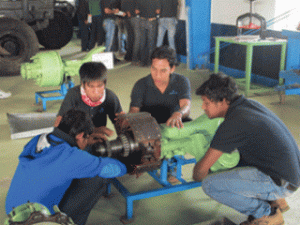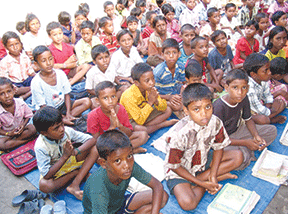Young Achievers
Taksheel Buddhadeo
THE LATEST HONOUR bestowed upon the seven-year-old music prodigy Taksheel Buddhadeo is an entry into the India Book of Records for participation in 200 on-air broadcast (radio, television) programmes — the highest number by any school student in India.
Taksheel has been practicing Indian classical music and the harmonium from the time he was three. Continuous […]





















Critical mass in Indian education
– J.S. Rajput is a former director of NCERT and NCTE
A NEW GOVERNMENT will be sworn into office in New Delhi by mid-May after an aggregate sum of Rs.30,000 crore will have been spent — according to a study of the Centre for Media Studies, Delhi — by an estimated 10,000 candidates in the electoral […]